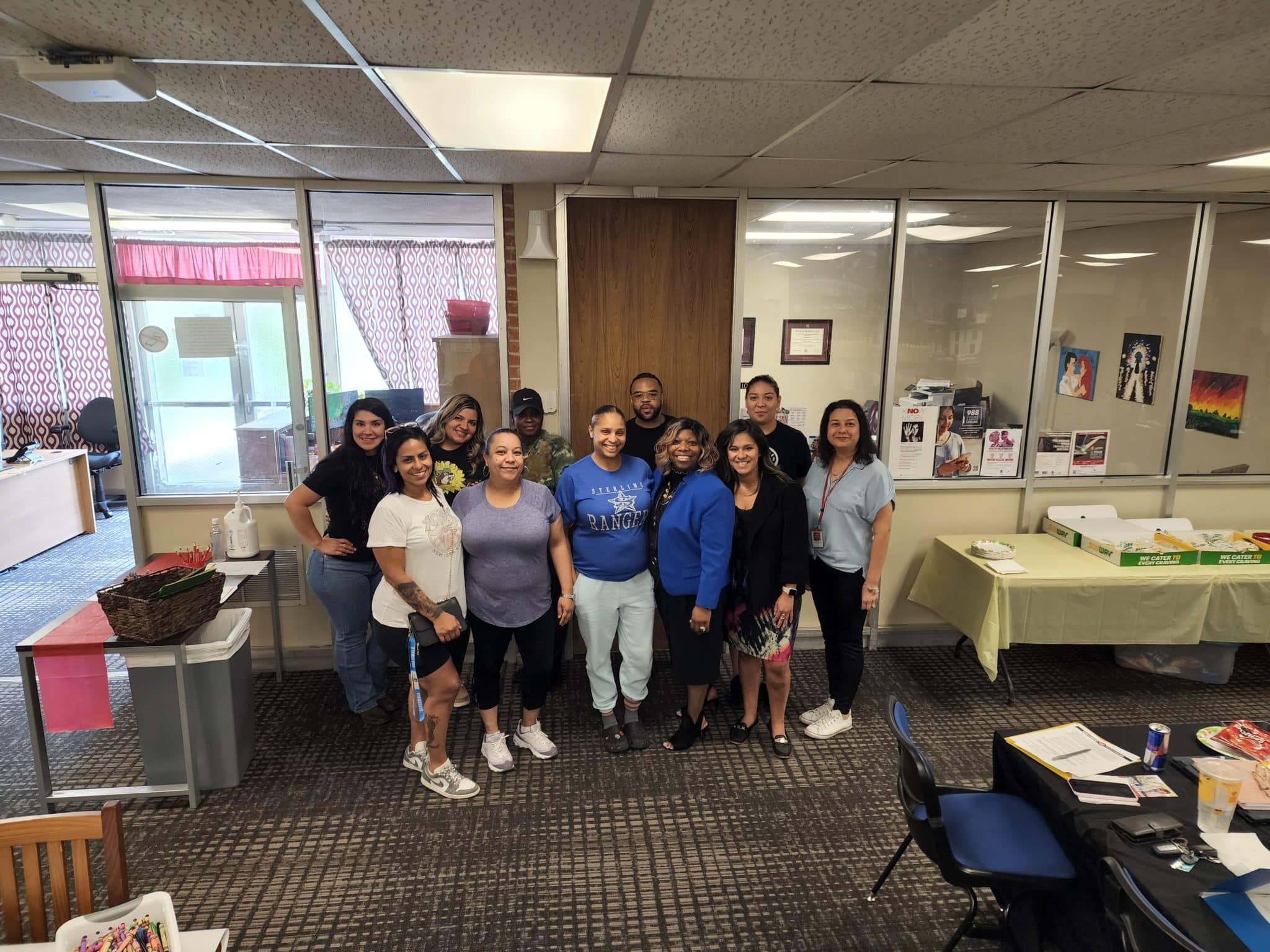For Victoria Marron, her mission to support marginalized student populations — including students who are parenting — is personal. “I was a young mother myself when I began at this very community college,” she told Achieving the Dream.
Marron is the chief equity officer and associate vice president of retention and transition services at Lee College. Now a leader in community college reform, she began her own higher education journey when she was pregnant with her first child at 18. “From then on through my doctoral program, I lived the juggling act we call the student parent life.”
Nearly four million people live the same juggling act every year: One in five college students are parents, and most parenting students are women. Without access to adequate supports like childcare, financial aid, or flexible schedules, student parents face significant challenges that often prevent them from completing their education.
Achieving the Dream created the Community College Women Succeed initiative in 2019 to help institutions identify, understand, and support student parents. Lee College has been a leading voice on this issue. They are taking steps to support these students, particularly single mothers, so that they have a clear path to a better future for themselves and their families.
Parenting in college — by the numbers
55%
of community college students are women
1/3
of women attending community college are mothers
60%
of moms attending community college are single
Source: Institute for Women’s Policy Research analysis of data from the U.S. Department of Education, National Center for Education Statistics, 2015–16
Better data, better outcomes
Until recently, Lee College did not have the capacity to identify single parents in their data systems. They added this identifier to their general application in 2019, a simple change that has empowered the college to make data-informed decisions to better support student parents. When they first analyzed the data in 2020, the chief equity officer and the provost found that, of the students who self-identified as single parents, 70 percent had not taken a class in the past five years. “This blew my mind, and it became even more of a focal point to support this population,” Marron said.
In the same year, Lee College was one of eight community colleges selected to participate in the College Success for Single Mothers (CSSM) Project, an initiative funded by the ECMC Foundation and supported in part by ATD. Through this grant, the college has been able to take a holistic approach not only to identify single parents in the student body but also to gain better insight into their needs, Marron said.
Lee College has distributed surveys and held focus groups to improve their data around student parents. They have adopted an assessment tool that guides their decisions around programming, course schedules, and physical spaces – “we even count all of our diaper changing stations” — and implemented processes and partnerships to serve student parents in the most equitable way possible. Thanks to a financial gift from philanthropist MacKenzie Scott, the college has also been able to renovate a building on campus that will function as a hub for students seeking basic needs support and referrals to community programs.
Their work is supporting not just Lee College students, but learners at other institutions that have benefitted from Lee’s insights. And just as the college shares valuable information, such as its strategies to identify single parents to better provide support, it also uses the collective expertise of the ATD Network and peers in the CSSM Project. “The ability to have a network that we can reach out to, where we can discuss common challenges and build support, has been invaluable,” Marron said.
A long-lasting impact
When colleges mobilize to support student parents, they have an impact on more than just the individual students’ lives — they transform communities. Higher education opens doors and increases economic mobility. Children who see their parents attending college are more likely to pursue higher education themselves.
“When we hear from student parents,” Marron explained, “we almost always hear that they decided to go to school to set a good example for their children and make a better life for their families.”
As a resident and product of the community that Lee College serves, the task of supporting student parents is integral to Marron’s work. “Education is the key to breaking the cycle of poverty,” she said, adding that she has seen this breaking of generational barriers firsthand. “If we are truly committed to providing equitable access in our community, this is a population that can’t be ignored.”





